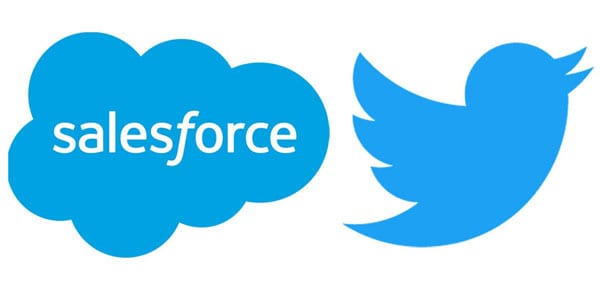
October 15, 2018; Wired
The need for affordable housing and the challenges posed by those who are homeless are on the agenda of cities and towns across the nation. As NPQ observed when considering how civic, nonprofit, and corporate leaders have weighed in on finding solutions, “solving homelessness requires more than programs; it requires a human vision, one in which homelessness, as Los Angeles mayor Eric Garcetti has put it, is seen for what is—namely, a humanitarian crisis that affects us all.” While nonprofit organizations may find growing philanthropic support, galvanizing an effective public policy response remains difficult.
Last spring, Seattle’s city council approved a $47 million tax on large corporations doing business in the city to support a program to address their problems with homelessness. In making this decision, Seattle’s elected leaders, hoping to bring corporate leaders on board, created a program that would raise only a fraction (13 percent) of the funds they needed. They quickly learned that even this modest tax was too much to ask, as the business community said no loudly. Just weeks later, in response to strong protests from major corporate citizens, including Amazon and Starbucks, the city council cancelled the tax. The problems of homelessness and affordable housing remained, still in need of a solution.
Now, it is San Francisco’s turn to try to add resources to take on a similar housing dynamic. A booming tech economy has helped drive housing prices upward, leaving few affordable housing options within the city limits and making homelessness an even more difficult problem to solve. Led by the Coalition for the Homeless, enough signatures were gathered to place a measure on the November ballot which, if passed, would raise an additional $300 million by taxing businesses to provide affordable housing and increase support services. As in Seattle, business interests have opposed the measure, claiming that this response to the challenge of homelessness is the “right priority, wrong approach.”
This week, a Twitter battle broke out between two billionaire leaders of the San Francisco business community over exactly what the right way to attack homelessness is. For Salesforce’s CEO, Marc Benioff, the problem is so large that it requires both a philanthropic and a governmental response. Both passing the business tax and corporate giving are part of the answer. According to Wired, Benioff told a conference audience, “Philanthropy can only scale so far…a problem this stubborn and devastating demands a larger, more holistic solution.”
We have these incredible companies, incredible entrepreneurs. Yours truly, others of course. But we cannot separate ourselves from others. We have to get back to the feeling that we’re one, and that we are responsible for the city that we are living in and growing our businesses in.
Wired notes that Benioff has put his money behind the tax increase and “last week pledged $2 million (half of it from Salesforce, half from himself) to support Proposition C, a San Francisco ballot initiative that would impose a new tax on companies in the city generating more than $50 million in gross receipts. SF’s Office of Economic Analysis estimates the tax would raise between $250 million and $300 million per year, enough to double what the city spends on the homeless problem now.”
Benioff’s comments quickly drew a challenging tweet from Twitter’s CEO, Jack Dorsey. Dorsey opposes the tax increase and supports the position of the city’s mayor that “before effectively doubling the money currently spent on homelessness…the city should first complete an ongoing audit of what the city is already spending. Until that’s done, we don’t know how much or what type of new homelessness funding is needed.”
Sign up for our free newsletters
Subscribe to NPQ's newsletters to have our top stories delivered directly to your inbox.
By signing up, you agree to our privacy policy and terms of use, and to receive messages from NPQ and our partners.
“Before we double the tax bill overnight,” Dorsey says, “San Franciscans deserve accountability for the money they are already paying.” From his perspective, more study is needed; since government inefficiency is the problem, a solution shouldn’t be rushed.
For Benioff, Dorsey’s position is just a smokescreen for not wanting to pay the bill for doing what needs to be done. In a follow-up tweet, Benioff challenged Dorsey and other corporate leaders to act personally and politically if they wanted to solve major social issues.
CEO @jack created $50B in market cap in Twitter & Square & $6B personally in our city & received a special Mid Market Tax Break. Exactly much have his companies & personally given back to our city, our homeless programs, public hospitals, & public schools? Yes @OurHomeSF.
— Marc Benioff (@Benioff) October 12, 2018
The Benioff-Dorsey dialogue illustrates the ongoing challenge of building support for finding systemic, not personal solutions to significant societal problems. Are those with wealth and political power ready to do more than be philanthropic? When advocates and nonprofit leaders call on them to stand behind efforts to change the systems from which they have profited, is that too much to ask?
Nobel Prize–winning Economist Joseph Stiglitz, writing in the New York Times, suspects it might be.
Like the dieter who would rather do anything to lose weight than actually eat less, this business elite would save the world through social impact investing, entrepreneurship, sustainable capitalism, philanthrocapitalism, artificial intelligence, market-driven solutions. They would fund a million of these buzzwordy programs rather than fundamentally question the rules of the game—or even alter their own behavior to reduce the harm of the existing distorted, inefficient and unfair rules. Doing the right thing—and moving away from their win-win mentality—would involve real sacrifice; instead, it’s easier to focus on their pet projects and initiatives.
We are left asking whether there are more Benioffs than there are Dorseys.—Martin Levine











